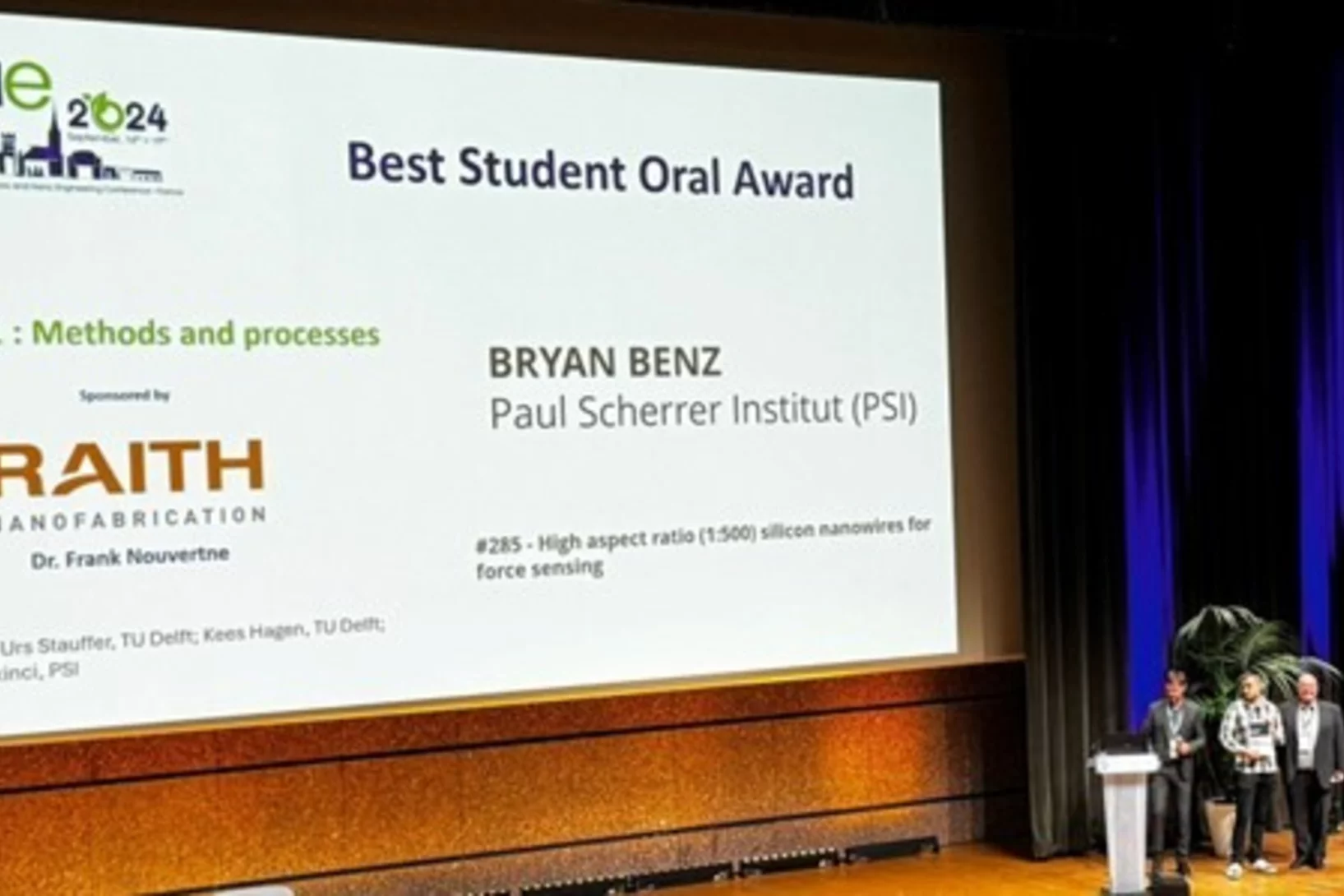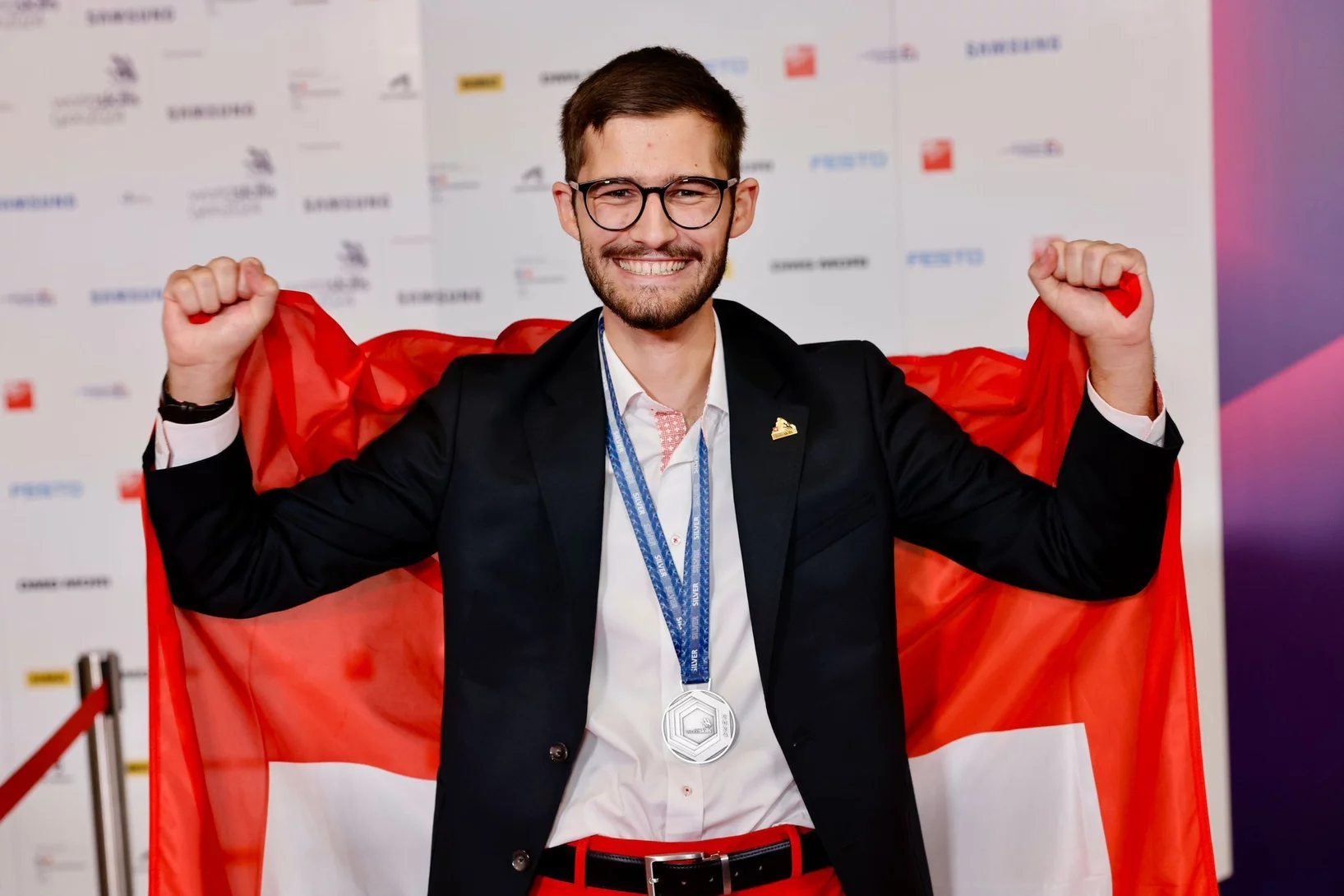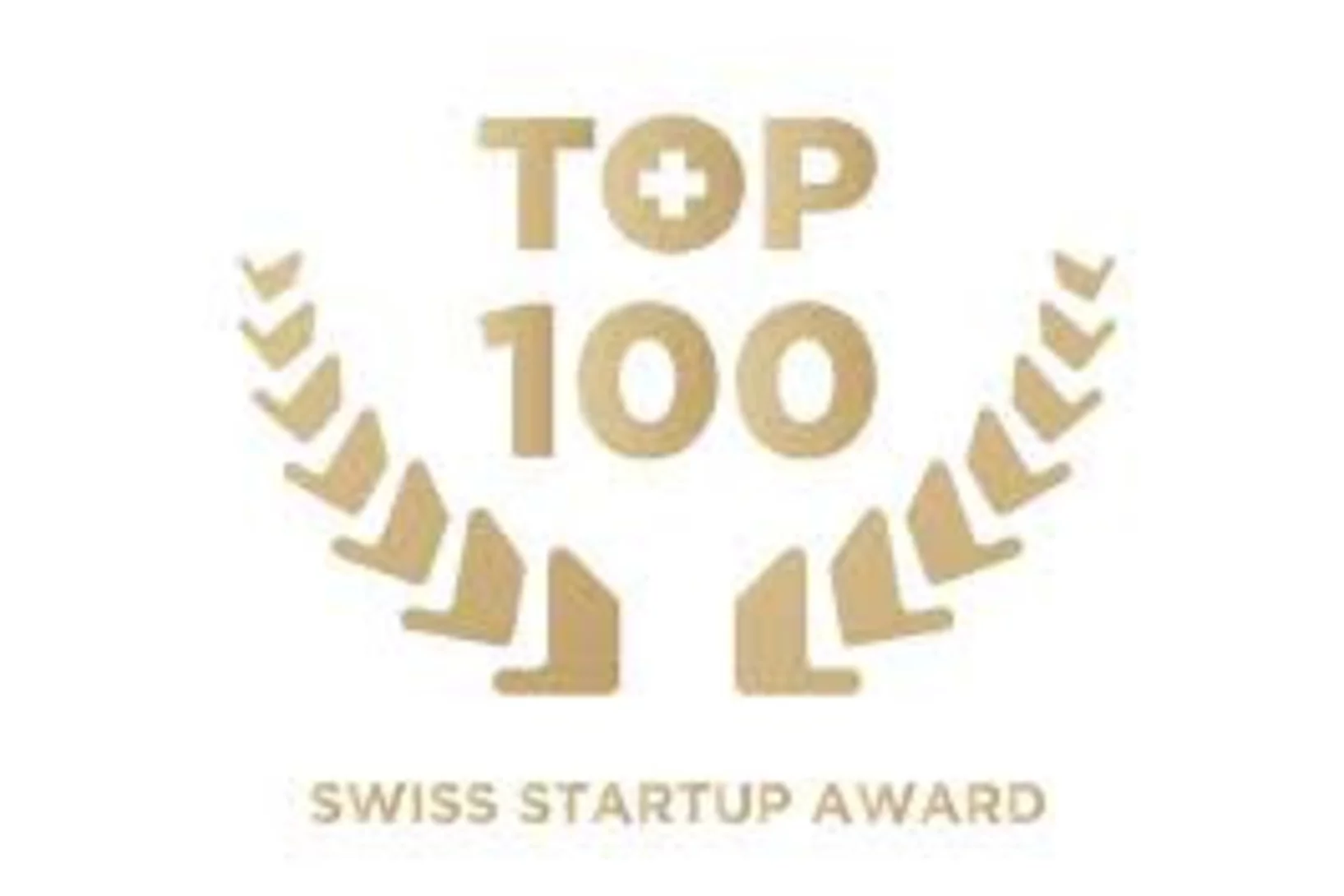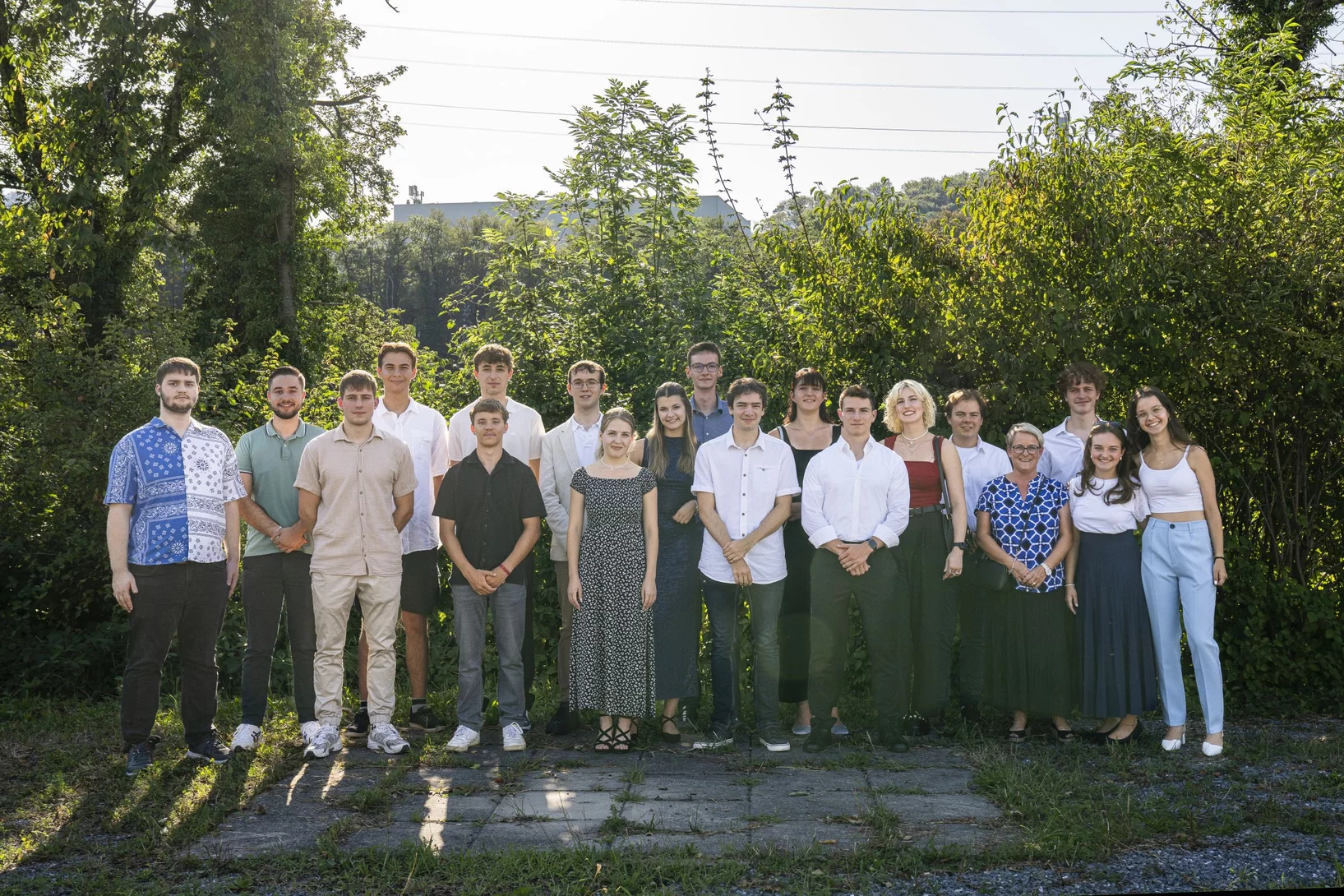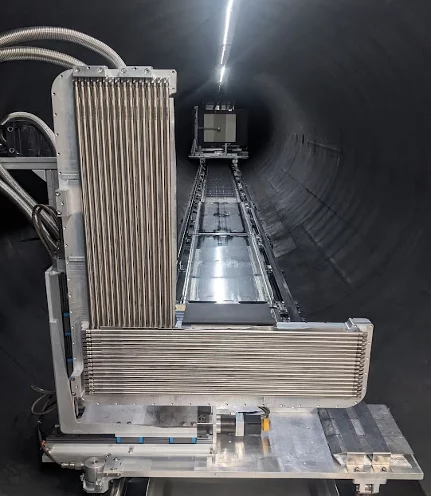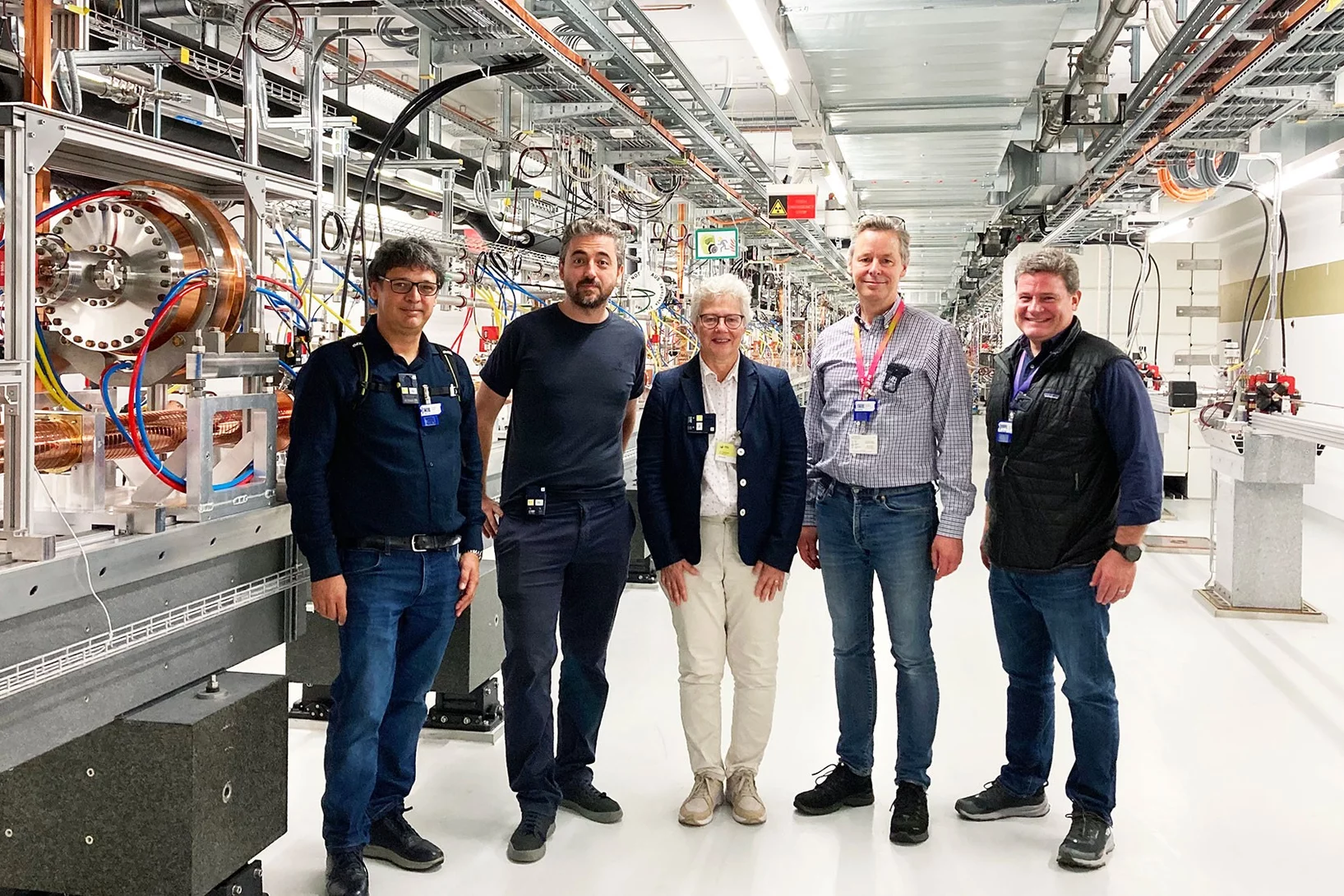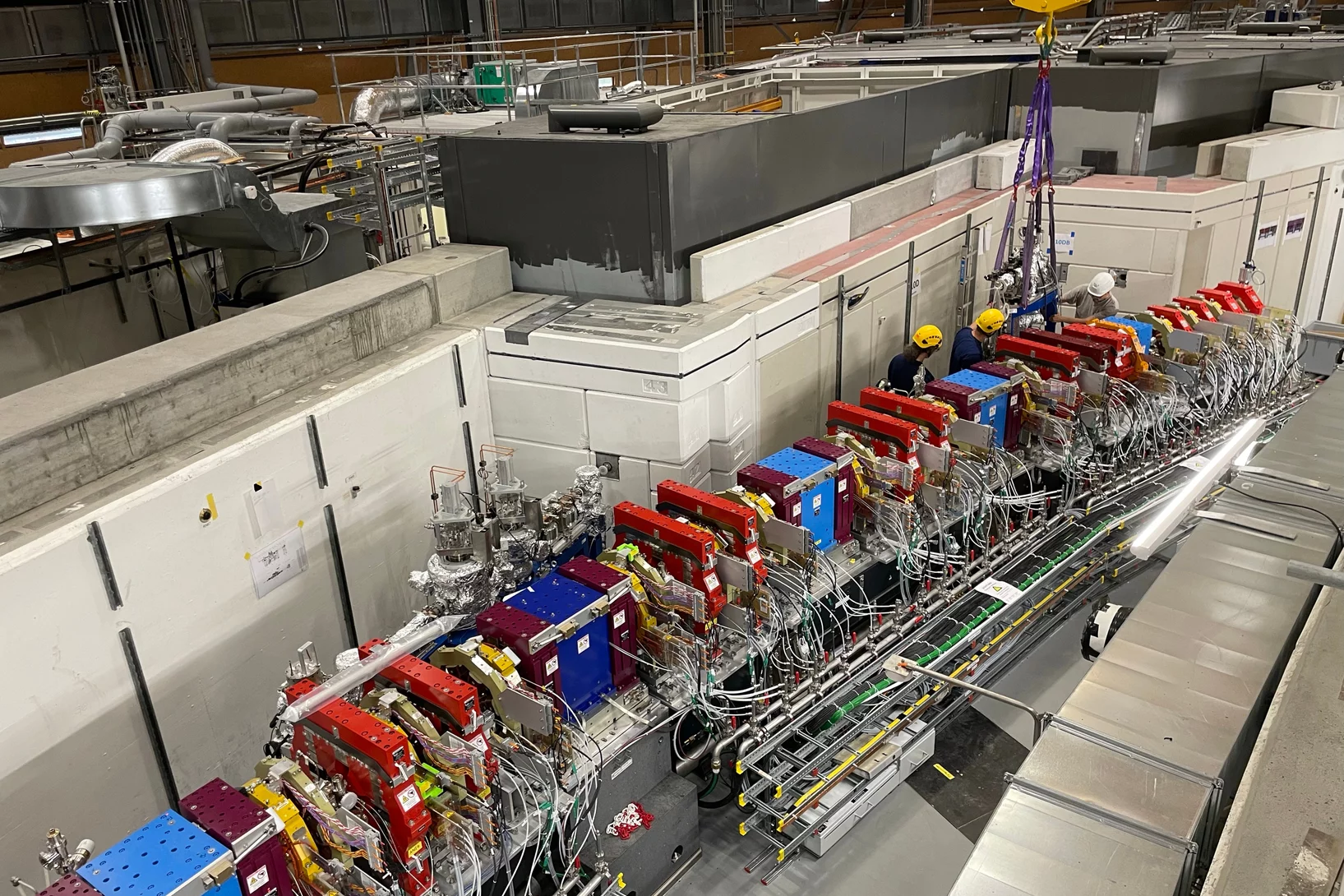Au PSI, plusieurs projets se consacrent à des questions de recherche importantes autour du coronavirus Sars-CoV-2 et des maladies qui en résultent. Nous vous informons sur les activités et les projets, par exemple sur les analyses de tissus pulmonaires, sur la production de protéines et d'anticorps ou sur les idées de nouvelles recherches sur le Covid-19.
Liens utils
Ian Shipsey
The Mu3e collaboration is deeply saddened to by the loss of our colleague and friend Professor Ian Shipsey, Head of Department of Physics in Oxford and co-lead of the Oxford Mu3e group.
Career Perspectives at our Partners: Maria-Alexandra Paun, Federal Office of Communications
Our partners are interested in attracting PSI's early career researchers, and we introduce scientists working at partner companies to showcase career perspectives. In today's post, meet Maria-Alexandra Paun, who did her PhD in Microelectronics and Microsystems at EPFL and is currently working at the Federal Office of Communications. She tells us how she managed the transition away from academia, and what she is working on now.
New Monochromators for SLS 2.0
The brand-new monochromators that have been built by XDS Oxford for the hard X-ray beamlines at SLS 2.0 have now arrived. They were unpacked beginning of the week, and are currently being tested in our new lab space at Park Innovaare. These advanced instruments will play a crucial role in enhancing the beamline performance, ensuring superior precision and efficiency in the upcoming experiments.
Le seigneur des fluides
Lorsqu’il était étudiant, Athanasios Mokos se passionnait déjà pour la dynamique des fluides. Aujourd’hui, il modélise des processus complexes à l’Institut Paul Scherrer PSI, comme la formation de dépôts sur des crayons combustibles dans les réacteurs nucléaires.
Recognition at MNE 2024 Micrograph Contest
The MNE conference is the flagship event of the International Society for Micro- and Nanotechnology (iMNEs). The research fields covered by the MNE conferences have consistently driven advancements in the development of smaller and smaller structures. To emphasize the significance of micrographs in this field, the conference features a micrograph contest, sponsored and hosted by Zyvex Labs. Entries are judged based on both their technological relevance and artistic merit.
This year, Peng Qi from the X-ray Nano Optics group, LXN, CPS, earned third place and an honorable mention for his two submitted images.
iLab an den Energy Days! im Verkehrshaus
18., 19. und 20. Oktober 2024
Energy Days! im Verkehrshaus der Schweiz
Welcome to LXN Rok Venturini
Herzlich Willkommen Rok Venturini im LXN!
Magnétisme en couches minces: un électron fait la différence
Une étape importante vers des mémoires informatiques novatrices
Happy Birthday, DECTRIS!
La société DECTRIS AG a été fondée il y a environ 18 ans en tant que spin-off de l’Institut Paul Scherrer (PSI) et s'est depuis établie comme un fournisseur de premier plan de solutions en détection des rayons X et des électrons. L’impressionnant développement de l’entreprise est le résultat de recherches innovantes, d’un travail d'équipe exceptionnel et d'une orientation claire vers les besoins du marché.
Converting the CHF3 greenhouse gas into LiF coating for high-voltage cathode materials toward high-energy density Li-ion batteries
The instability and the fading of high voltage cathode materials above 4.3 V remains a major challenge for the next generation of high energy density Li-ion batteries. Here, we present a facile, environmentally friendly, cost effective and scalable method to address this problem by uniformly fluorinating the surface of cathode materials with CHF3, a mild fluorinating agent but a potent greenhouse gas. CHF3 is successfully transformed into ~2 nm LiF homogenous layer covering the surface of layered-oxide cathode materials.
Orbitronics: new material property advances energy-efficient tech
Discovery of orbital angular momentum monopoles boosts the emerging field of orbitronics, an energy-efficient alternative to electronics.
Die Stifti’24 fand am 12. und 13. September 2024 in Brugg-Windisch statt
Die Erstausgabe der Regionalen Berufsschau im September 2022 stiess auf ein rundum positives Echo. Jetzt geht es in die zweite Runde auch mit dem PSI.
Bryan Benz awarded best talk at MNE 2024
Bryan Benz was awarded the conference’s best oral presentation at the 50th International Micro and Nano Engineering Conference (MNE 2024) for his talk entitled “High aspect ratio (1:500) silicon nanowires for force sensing”.
Start-up Lernende 2024
Über 50 Lernende nahmen an der Begrüssung des Gewerbeverein Surbtal teil!
Exploration du sous-sol avec l’intelligence artificielle
Les propriétés des unités géologiques sont obtenues à l’aide d’images de carottes de forage.
Aussi rapide qu’un avion et aussi propre qu’un train
Dans le cadre d’une collaboration suisse, des scientifiques ont analysé l’impact environnemental potentiel du concept Hyperloop.
Ferromagnetic quantum critical point protected by nonsymmorphic symmetry in a Kondo metal
Quantum critical points (QCPs), zero-temperature phase transitions, are win- dows to fundamental quantum-mechanical phenomena associated with universal behaviour. Magnetic QCPs have been extensively investigated in the vicinity of antiferromagnetic order. However, QCPs are rare in metallic ferromagnets due to the coupling of the order parameter to electronic soft modes. Recently, antisymmetric spin-orbit coupling in noncentrosymmetric systems was suggested to protect ferromagnetic QCPs. Nonetheless, multiple centrosymmetric materials ...
Individualiser quotidiennement l’irradiation de la tumeur
Une étude de faisabilité du PSI montre que même dans le quotidien clinique, il est possible d’adapter chaque jour le plan de traitement. De cette manière, la tumeur est toujours irradiée précisément avec la bonne dose.
WorldSkills 2024
Grossartig! Melvin Deubelbeiss hat an der WorldSkills 2024 in der Disziplin Elektronik die Silbermedaille gewonnen
Les spin-offs du PSI brillent aux TOP 100 Swiss Startup Awards!
Deux spin-offs du Paul Scherrer Institut PSI ont réussi à se classer parmi les TOP 100 Swiss Startups 2024!
Berufsübergreifendes Projekt (BüP), eine Zwischenbilanz
Erfolgreicher Start des Töggelikasten-Projekts
Am 13. Dezember 2023 startete das Projekt Töggelikasten. In diesem Projekt wollen wir alle Berufe am PSI abbilden und dies 2025 am Anlass «Lehrberufe à la carte» präsentieren.
Lehrabschlussfeier 2024
Lehrabschlussfeier
Welcome to LXN Jamie Bragg
Herzlich Willkommen Jamie Bragg im LXN!
Welcome to LXN Tijl Degroote
Herzlich Willkommen Tijl Degroote im LXN!
Towards first experiments on SANS-LLB
SANS-LLB instrument at SINQ close to performing first internal experiments
Excited About SLS 2.0!
Researchers tell us why they are excited about SLS 2.0 and more brilliant light for science
Nobel Prize winner Anne L’Huillier visits SwissFEL
X-ray free-electron lasers could unlock the next frontier in attosecond research
The Zuoz school’s 26th edition
26th Zuoz Summer School on particle physics took place at the Lyceum Alpinum with close to 100 participants.
SLS 2.0 : Donner à l’industrie les moyens de réussir avec une technologie de pointe
Le projet « SLS 2.0 » portera la source de lumière synchrotron suisse (SLS) du PSI à un nouveau niveau technologique, garantissant ainsi son maintien en tête des recherches mondiales. Cette mise à niveau n’offre pas seulement de nouvelles perspectives pour la science, mais aussi pour l’industrie.
PRISMAP Radiolanthanides Workshop: Advancing Cancer Therapy
The PRISMAP Radiolanthanides Workshop took place at the Paul Scherrer Institute in Switzerland from September 3 to 5, 2024. This influential three-day event gathered leading experts to review the latest advancements in radiolanthanides—radioactive elements at the forefront of cancer therapy. The workshop showcased cutting-edge developments in radiolanthanide production and explored their applications in both preclinical and clinical settings. A key highlight was an insightful panel discussion on the "Clinical Translation of Terbium-161 and Lessons Learned," which provided valuable takeaways for the future of cancer treatment. The event received extensive media coverage and was recently featured by the Swiss Society of Radiopharmacy and Radiopharmaceutical Chemistry (SGRRC)













